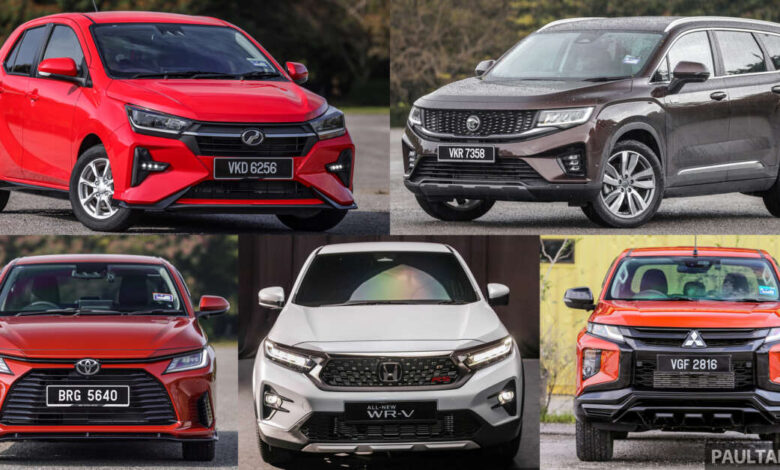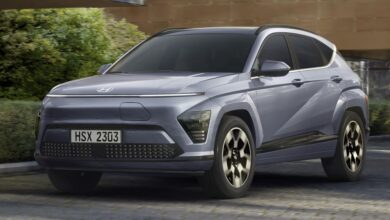2023 Malaysia car sales data by brand vs 2022

It was another record year for the Malaysian automotive industry, with sales reaching an astounding 799,731 vehicles in 2023. That’s a massive 11% increase over the previous year, so there are bound to be some big winners amongst the key players.
But just how big? We’ve now gotten the full breakdown of sales for each brand, and some of the results will raise more than a few eyebrows. To no surprise to anyone, Perodua continues to lead the market, but its sales didn’t just go up a little bit – it smashed the 300,000 mark by delivering 330,325 vehicles last year. That’s an increase of 48,306 units (more than what fifth-placed Mitsubishi sold all year) or 17.1%.
Second-placed Proton also had a comparatively good year, selling 150,975 vehicles (up 14,949 units or 11%) – finally reaching its 150,000 target (albeit a year late). Together, the two national carmakers captured a 66.9% market share, the highest since 2002.
Toyota remained the closest non-national challenger, reporting a marginal increase of 6,165 units (+6.2%) to 106,206 units. Behind it, Honda’s sales remained virtually flat at 80,027 units (down 263 units or 0.3%), while Mitsubishi sold 2,298 fewer vehicles at 21,719 units (-9.6%). Nipping at the diamond brand’s heels was Mazda, sales of which shot up an impressive 30.6% to 19,124 units (up 4,480 units).
Elsewhere, the continued momentum of the new Ranger and Everest enabled Ford to post a 51.8% increase in sales to 8,858 units (up 3,021 units). A big loser last year was Nissan, sales of which fell 27.5% to a round 10,000 units (down 3,785 units), but this was eclipsed by even bigger losses from Volkswagen (down 1,200 units or 31.5% to 2,612 units) and Subaru (down 714 units or 28.4% to 1,801 units).
In the premium segment, BMW also posted flat sales of 11,973 units (just three fewer vehicles sold), while Mercedes-Benz’s sales dipped below the 10,000 mark with 9,315 units sold (down 696 units or 7%). The slightly underwhelming performance of the big two has allowed bit players to post huge gains, including Lexus (nearly doubling its sales to 1,901 units), MINI (up 595 units or 49.1% to 1,808 units) and Porsche (up 631 units or 70.5% to 1,526 units, the latter beating even Hyundai).
An underlying theme last year was the continued rise in electric vehicles sales, led by newbie BYD. It entered the market in a respectable 14th place with 3,728 vehicles sold, although the fact it only barely edged out BMW’s much more expensive EVs (over 3,600 units delivered) is probably an even bigger story. Ahead of it was Chery, which sold 4,493 units – despite deliveries only starting in September.
We should point out that Peugeot and Kia – both franchises held by Bermaz – have stopped reporting their numbers to the Malaysian Automotive Association (MAA), which is why their sales no longer figure on this table. Also missing is Tesla, which is not a member of the association.
Looking to sell your car? Sell it with myTukar.







